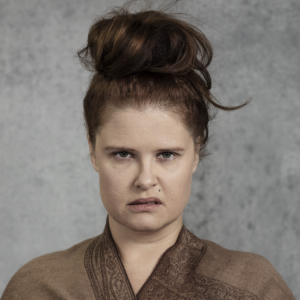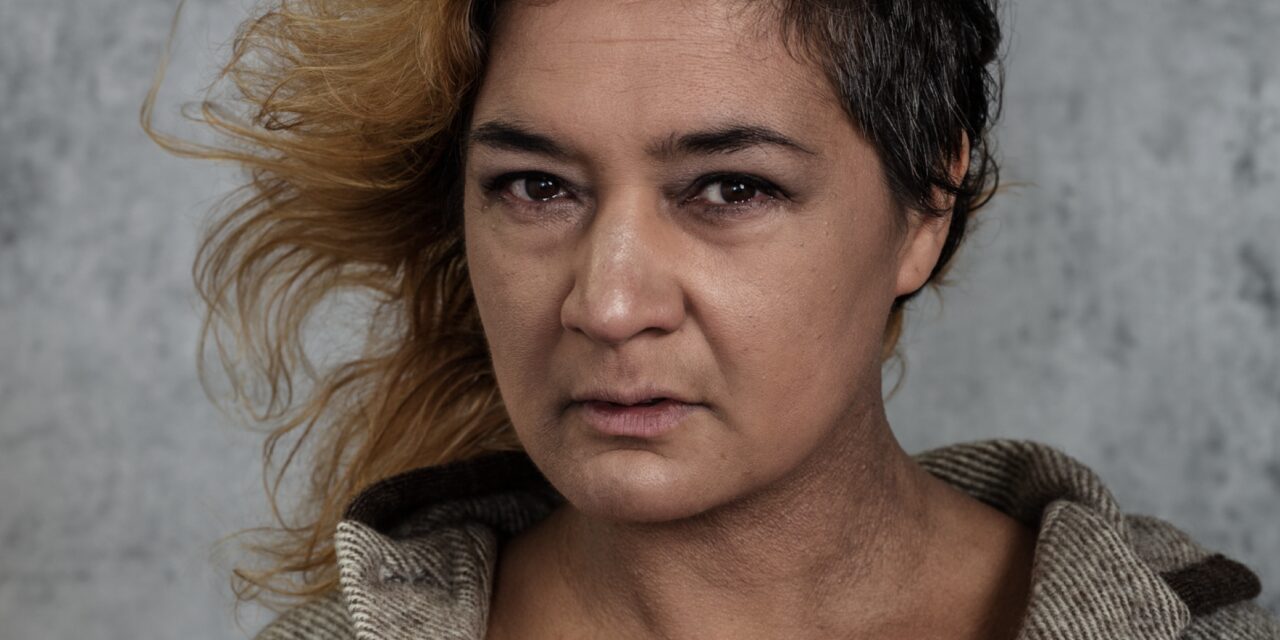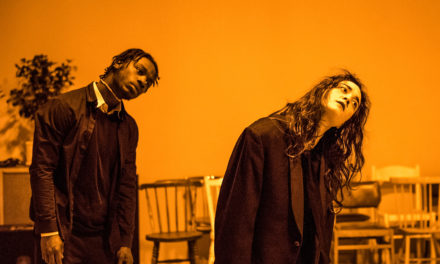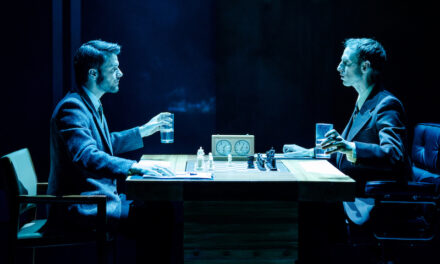Despite being dead for 400 years and having lived and worked on the far side of Planet Earth, William Shakespeare continues to be one of the most prominent figures in New Zealand theatre. One of the most high-profile international showcasing of New Zealand theatre was Ngākau Toa’s electrifying production of Troilus and Cressida translated into Te Reo Māori (Māori language) by Te Haumihiata Mason at London’s Globe to Globe Festival (2012). The project was led by Rawiri Paratene, who was the first Māori actor to graduate from the New Zealand Drama School and has performed in several seasons for the Globe company in London. Paratene’s love of Shakespeare is well documented and in a documentary about the Troilus and Cressida project he said, “I adore Shakespeare, and he’s the reason I chose to be in this acting game,” Since it was established in 2015, Auckland’s Pop-Up Globe has sold over 500,000 tickets to its accessible and entertaining Shakespeare productions in its replica Globe Theatre, making it perhaps the most popular theatre company ever formed in New Zealand. In other cities annual outdoor Summer Shakespeare productions attract large audiences. Since 1991 over 110,000 secondary school students have participated in the Shakespeare Globe Centre New Zealand University of Otago Sheilah Winn Shakespeare Festival.
The extraordinary profile of Shakespeare in New Zealand theatre – far greater than that of any local playwright – has been questioned as much as it has been celebrated. The associations of Shakespeare with British colonization continue to be debated, but some of the most memorable and affecting arguments around Shakespeare have focused on feminism and gender. It’s 26 years since Jean Betts’ Ophelia Thinks Harder turned Hamlet on its head, made Ophelia the protagonist of Shakespeare’s most famous play and seriously messed with our thinking about Shakespeare and gender. Since then Betts’ play has become a New Zealand classic, still widely studied and performed, especially in high schools where its message of empowerment for young women is so potent. Now playwright and director Sarah Delahunty brings feminist Shakespeare deconstruction back to New Zealand theatre with a fresh sense of urgency and anger in her new play This Long Winter.
Delahunty focuses on the appalling treatment of Queen Hermione from Shakespeare’s The Winter’s Tale at the hands of her cruel and jealous husband Leontes. We see Hermione imprisoned, giving birth to her baby girl Perdita in prison, having the child taken from her and abandoned. For the rest of the play (sixteen years in real time) she searches for her lost child. In This Long Winter Delahunty dramatizes the unseen scenes of The Winter’s Tale that Shakespeare chose not to show us – the unnecessary grief and anxiety suffered by Hermione due to the tyranny of her abusive partner. Into this episodic quest narrative, Delahunty weaves encounters between Hermione and other female Shakespearean characters, in the process revealing the inherent injustices in some of Shakespeare’s most outrageously misogynist plots. Helena (All’s Well that Ends Well) fools her philandering husband Bertram into sleeping with her so she can have his child, Juliet (Measure for Measure) is ostracized for becoming pregnant out of wedlock and Katherine (The Taming of the Shrew) capitulates to her bullying and manipulative new spouse. All of these plays have been staged within the last couple of years in New Zealand, and despite some of them being famous comedies, Delahunty illustrates that their treatment of women is no laughing matter.

Alice May Connolly as Emilia in “This Long Winter” by Sarah Delahunty. BATS Theatre, Wellington. Directed by Sarah Delahunty and Neenah Dekkers-Reihana. Image by Tabitha Arthur.
Erina Daniels brings immense strength and integrity to the role of Hermione, as chillingly effective in stillness as when unleashing her anguish. Alice May Connolly contributes a delightfully energetic performance as Hermione’s maid Emilia, who abandons her service in pursuit of the seductive but totally faithless young Romeo (highly ironic given the circumstances). In contrast, the striking status of Jean Sergent’s Paulina provides consistent strength and support for Hermione and in the end, she is the master strategist who orchestrates the revelatory finale and the highly problematic “reconciliation” between Hermione and her husband. As the “shrew” Katherine, Hannah Kelly has a riveting stage presence, exuding dignity and suppressed potential. Huia Haupapa brings an exuberant energy to her portrayal of Perdita, who is more optimistic that men can change.

Jean Sergent as Paulina in “This Long Winter” by Sarah Delahunty. BATS Theatre, Wellington. Directed by Sarah Delahunty and Neenah Dekkers-Reihana. Image by Tabitha Arthur.
Delahunty and Neenah Dekkers-Reihana have directed a beautiful first production of This Long Winter. The cast of thousands (well, twenty-two) actors and musicians filling the Random Stage at BATS Theatre gives the play an epic scope, enhanced by Michael Trigg’s ingenious design which transforms the space into a literal and metaphorical prison by the simple addition of wire mesh to the theatre walls. Shiny theatre lamps hung on the side walls project a majestic theatricality while allowing for moody side-lighting that gives depth and resonance to the production imagery. The slamming of the central doors several times in the first few minutes of the play establishes the sudden violence of Hermione’s incarceration. A scaffold tower above the central doors enhances the prison imagery while also providing the perfect perch for vocalist Carrie Green, who comments on the action with beautifully orchestrated songs composed by Holly Ewens. The live score played by cellist Charlotte Forrester and guitarist Isaac Thomas provides haunting accompaniment to the action throughout. The eclectic costuming evokes a number of historical periods from the Renaissance to the present, signifying the transference of misogynist power structures from one era to the next. Yet the bleakness of the play’s themes is balanced with many playful moments and ironic humor. The play is not a lecture, rather it revels in the theatrical possibilities of Hermione’s untold story. Even as it follows the narrative of her long quest for her lost daughter, the production has a poetic quality which is enhanced by the stylization of the acting, the choric imagery, and the design. In one stunning stage picture, the famous image of the veiled statue of Hermione is multiplied to include all the other women in the narrative.

Charlotte Forrester (cellist) in “This Long Winter” by Sarah Delahunty. BATS Theatre, Wellington. Directed by Sarah Delahunty and Neenah Dekkers-Reihana. Image by Tabitha Arthur.
Men are appropriately marginalized in this production, but some of the male actors give impressive performances. Alex Greig as Leontes, dressed in a smart suit, exudes a sense of aggrieved masculine entitlement that is as disturbing as it is accurate. Barnaby Olson as Petruchio presents a more aggressive form of the male powerplay that openly sublimates and humiliates women. The behavior of both men is frighteningly familiar for 21st-century audiences as the #MeToo movement together with associated media stories and court cases bring male power abuse into unprecedented focus. In The Winter’s Tale, Shakespeare has Hermione forgive Leontes for his transgressions against her, but This Long Winter does not excuse or pardon Leontes, Petruchio, or any other man.
Thank you, Sarah Delahunty, for reminding us how pervasive and influential dramatic representation can be. Shakespeare is not here to defend himself but the bias against women in so many of his plays reflects myriad methods of inherited and systemic prejudice against women in Shakespeare’s community and throughout history. In a wonderfully crisp programme note, Delahunty writes, “Human beings have created many different injustices, discriminations, and inequalities in the world. The injustice towards, discrimination against and inequality of women are universal. Coming to understand this deeply over six decades of living I found myself yet again outraged when contemplating the plot of Shakespeare’s The Winters Tale.” Hermione’s ‘long winter’ symbolizes the historical and ongoing oppression of women and this production memorably and urgently asks, will this winter never end?
This post was written by the author in their personal capacity.The opinions expressed in this article are the author’s own and do not reflect the view of The Theatre Times, their staff or collaborators.
This post was written by David O'Donnell.
The views expressed here belong to the author and do not necessarily reflect our views and opinions.


















